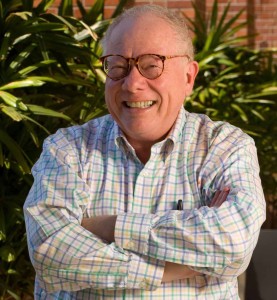Martin Krieger, University of Southern California – Flows and Finances

Martin Krieger
A city’s flow is key to its vitality.
Martin Krieger, professor of planning at the University of Southern California, discusses the flow-ways that go throughout cities and keep the information and people moving.
Martin Krieger’s current work is on defense and military policy, and on uncertainty and ambiguity. He has done social-science informed aural and photographic documentation of Los Angeles, including storefront houses of worship and industrial Los Angeles. Professor Krieger has won three consecutive Mellon Mentoring Awards, for mentoring undergraduates, faculty, and graduate students. Professor Krieger has worked in the fields of planning and design theory, ethics and entrepreneurship, mathematical models of urban spatial processes, and has explored the role of the humanities in planning. His nine published books describe how planning, design, and science are actually done. Professor Krieger has been a fellow at the Center for Advanced Study in the Behavioral Sciences and at the National Humanities Center, and is a Fellow of the American Physical Society. He has received grants from a variety of foundations, and has served as the Zell/Lurie Visiting Professor of Entrepreneurship at University of Michigan’s Business School. He joined the USC faculty in 1984. Professor Krieger often helps doctoral students, as well as undergraduates and masters students, focus and formulate their research projects.
Flows and Finances
People migrate to cities and within them, for freedom and jobs. Yet, as for agriculture and energy, in cities production and consumption are often well-separated. Conversely, many goods such as advanced medical care need be centralized.
Cities depend on flows of goods, energy, people, and information, and on a complementary flow of financial resources to develop those flow-ways, such as roads, utility lines, and communications systems.
Flow-ways are provided by public as well as private enterprise. Their costs of construction and maintenance are enormous. In general, the payoff from such flow-ways is over the very long term, and often there is good reason not to charge directly the full cost for their use. Governments issue bonds or through tax policy may encourage investments in flow-ways. Private firms raise capital in the form of bank loans, stocks, and bonds. Moreover, many people are willing to pay something now (in fees, in taxes) for the option or chance to use a flow-way some time in the future, even if they have no use for it in the present.
If we want people to make investments that pay off in the long run, their assets cannot be taken away arbitrarily. So property rights need to be respected. And estimates of risk, that a project would fail and so not pay back its bonds, need to be reliable so that those who make such investments are willing to take a known risk for a higher payoff.


